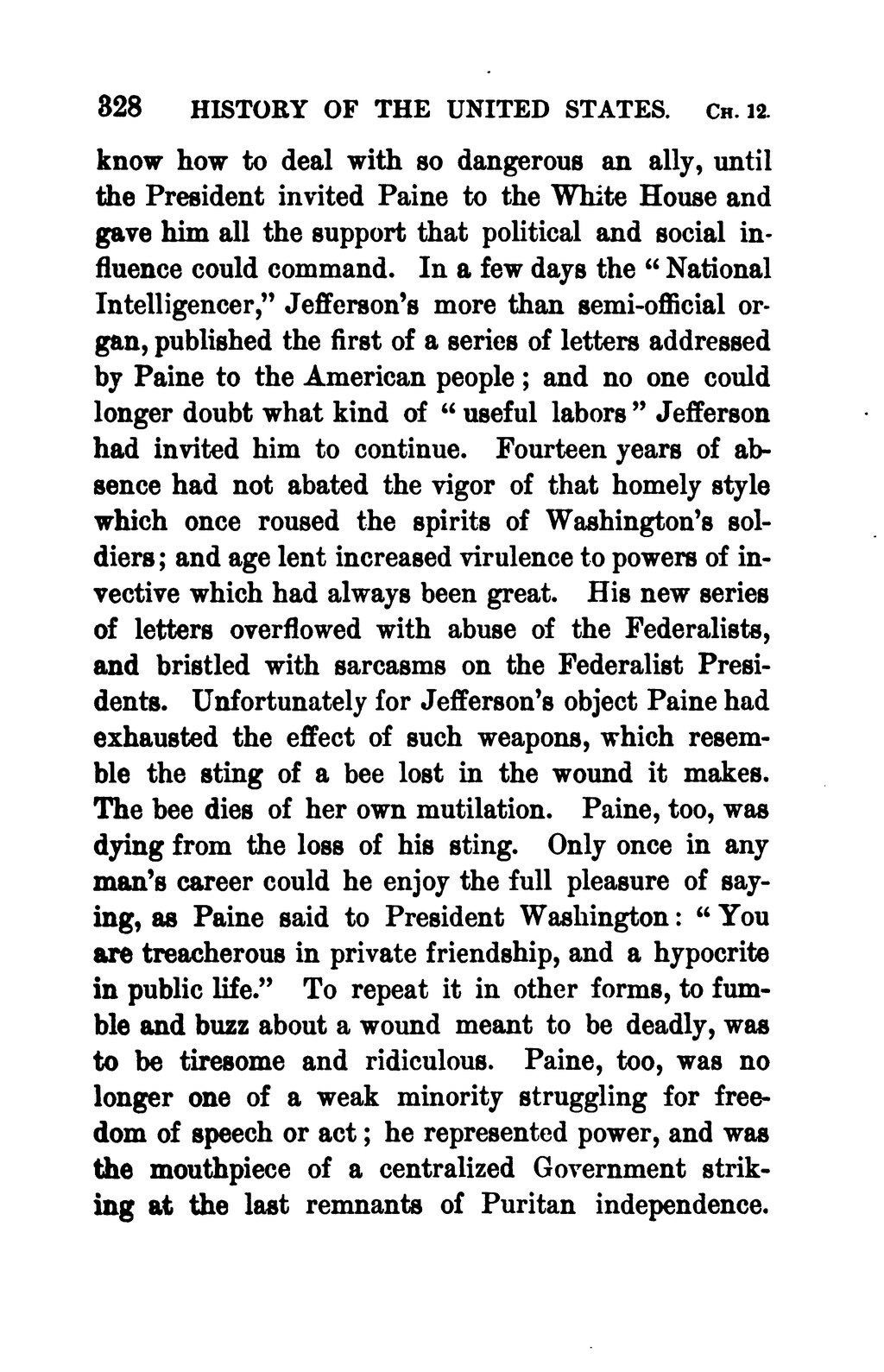know how to deal with so dangerous an ally, until the President invited Paine to the White House and gave him all the support that political and social influence could command. In a few days the "National Intelligencer," Jefferson's more than semi-official organ, published the first of a series of letters addressed by Paine to the American people; and no one could longer doubt what kind of "useful labors" Jefferson had invited him to continue. Fourteen years of absence had not abated the vigor of that homely style which once roused the spirits of Washington's soldiers; and age lent increased virulence to powers of invective which had always been great. His new series of letters overflowed with abuse of the Federalists, and bristled with sarcasms on the Federalist Presidents. Unfortunately for Jefferson's object Paine had exhausted the effect of such weapons, which resemble the the sting of a bee lost in the wound it makes. The bee dies of her own mutilation. Paine, too, was dying from the loss of his sting. Only once in any man's career could he enjoy the full pleasure of saying, as Paine said to President Washington: "You are treacherous in private friendship, and a hypocrite in public life." To repeat it in other forms, to fumble and buzz about a wound meant to be deadly, was to be tiresome and ridiculous. Paine, too, was no longer one of a weak minority struggling for freedom of speech or act; he represented power, and was the mouthpiece of a centralized Government striking at the last remnants of Puritan independence.
